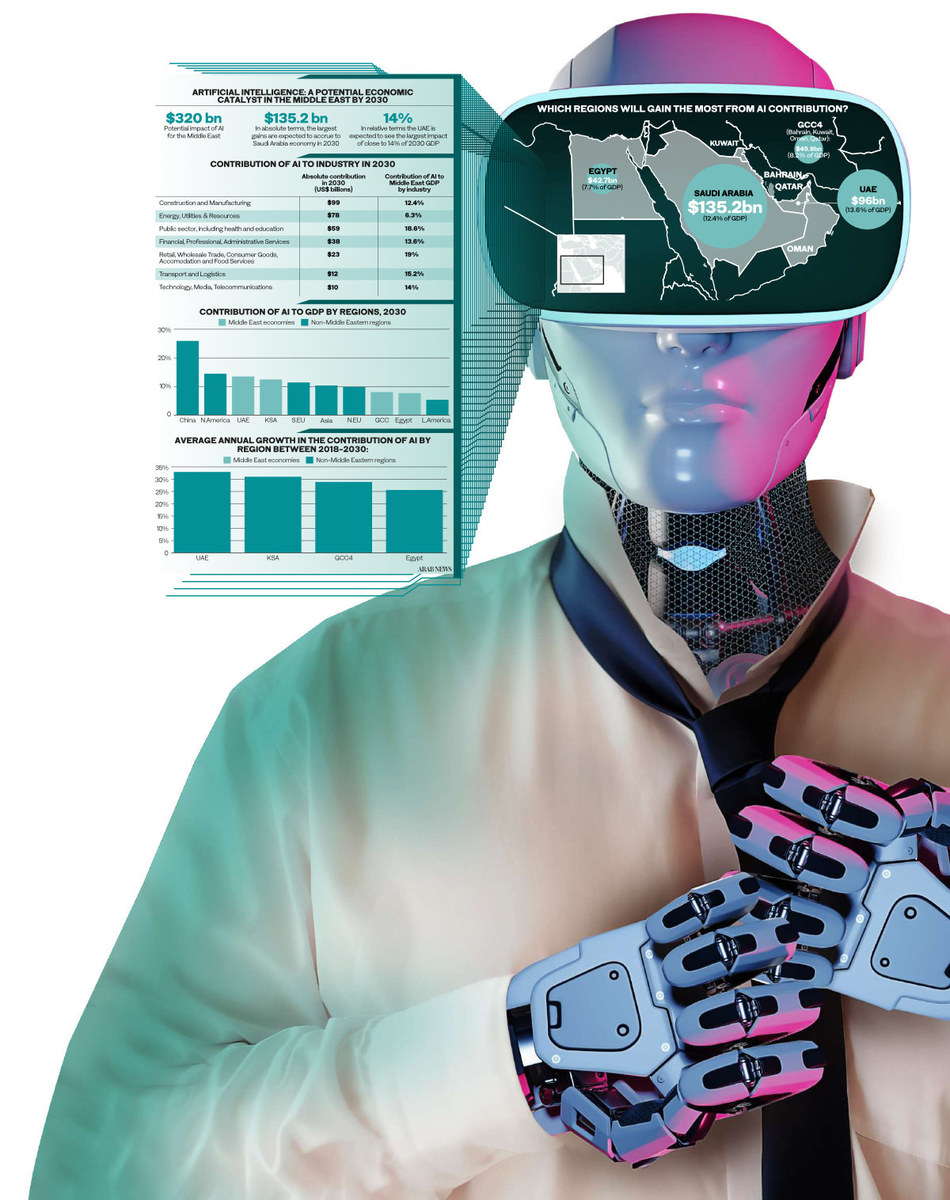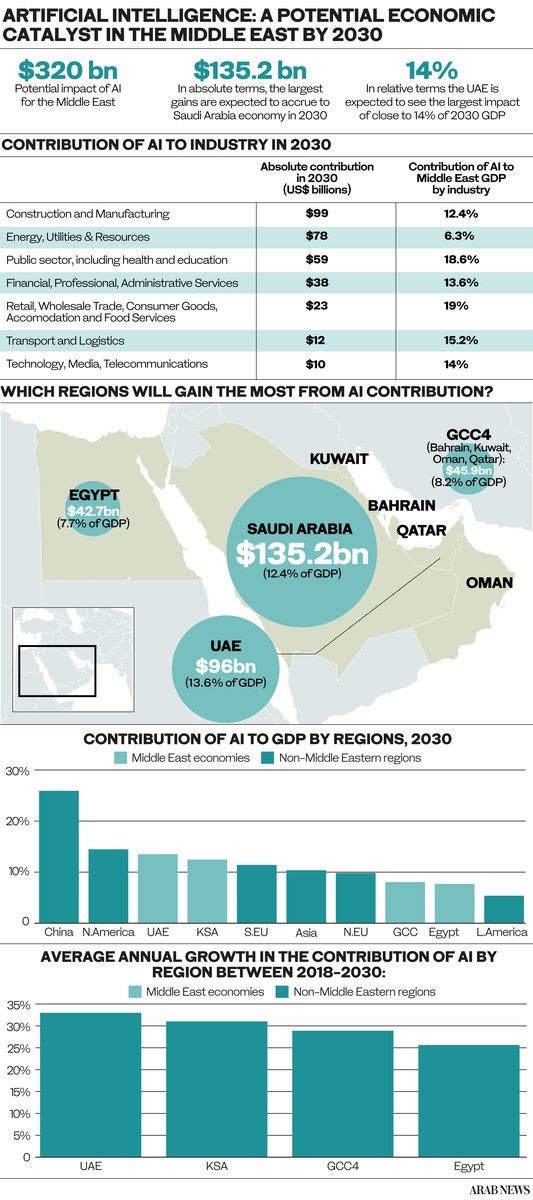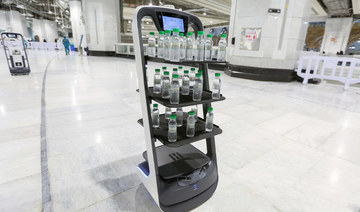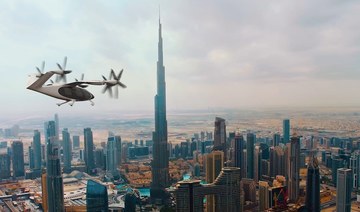RIYADH: With artificial intelligence disrupting the world economy, the Middle East cannot remain left behind as Saudi Arabia and the UAE are driving the adoption of AI in the region.
The Middle East is projected to accrue 2 percent of the total global benefits of AI in 2030, equivalent to $320 billion, with Saudi Arabia set to have the largest gains during that period with AI contributing over $135.2 billion to its economy, according to a PwC report.
While businesses can derive great benefit from using AI applications, industry experts Arab News spoke to pointed out that the region has a number of hurdles to overcome.
“We have to build the right ecosystem for AI and all other new technologies. We also have to ensure good and effective investment in ‘data’ collection, data privacy, smart infrastructure development, and human resources development,” said Fawwaz Al-Shammari, senior vice president and digital industries country head at Siemens.

Saudi Arabia has been at the forefront of adopting the latest technology in the region as part of its Vision 2030 and National Transformation Program 2020.
He pointed out that the private sector — be it companies, startups or entrepreneurs — should first see the real need for the market to find the right solutions and build the right skill sets within the Kingdom.
While from the government perspective, Al-Shammari suggested that the investment should be in the right regulations to ensure the implementation of the legal framework “that will regulate the market and also make it easy for private companies, startups and entrepreneurs to invest in AI applications and solutions.”
Attracting foreign investment
Saudi Arabia aims to attract SR75 billion ($20 billion) investment in data and AI as part of the target outlined under the National Strategy for Data & AI.
While there is some investment in AI in Saudi Arabia, supported by a commitment by the government to digitally transform the country, the PwC report pointed out that “investment is currently largely driven through domestic sources, and in particular the country’s sovereign wealth fund.”
“In order to maintain momentum in the pace of technological advancement in the country, there is a need for it to attract more foreign investment which is currently constrained by the challenges in the business environment,” the report noted.
The PwC report suggested that “addressing concerns raised by the business community will allow the Kingdom to attract external investment which will bring with it skills and expertise to upskill the local population.”
First, businesses that need humans can be replaced with technical solutions that use AI. The second way is to use AI to improve performance, cut costs, and increase productivity in internal processes
Talal Al-Tamimi, co-founder and chief technology officer at Ebana
Saudi Arabia aims to transform its workforce by training and developing a pool of 20,000 AI and data specialists and experts, of whom 5,000 will be equipped with strong skills and will be highly qualified in line with the National Strategy for Data & AI.
Talal Al-Tamimi, co-founder and chief technology officer at Ebana, said there are two ways that AI is used to help businesses grow in Saudi Arabia.
“First, businesses that need humans can be replaced with technical solutions that use AI. The second way is to use AI to improve performance, cut costs, and increase productivity in internal processes.”
He noted that “many of the pioneer workers are rushing to adopt some technical solutions, such as AI, blockchain, or others, without first looking at whether there is a real need or problem that they can solve for the people they want to help.”
“They end up failing and wasting their investment,” Al-Tamimi pointed out.
He believes that the technologies in which AI is used are “not the goal, but are just a tool available to you.”
“They come in handy when there is a real need for them. There are several requirements for the success of any AI such as a high volume of data and a strong infrastructure to use these tools,” added Al-Tamimi.

Data security
Being a new technology revolutionizing many markets and disrupting all kinds of businesses, Al-Shammari pointed out that there are several risks and challenges in adopting AI.
The regulations and the data privacy are the key challenges globally for AI, but he said the government in Saudi Arabia is addressing these challenges from an early stage by creating the Saudi Data & AI Authority as well as the National Center for Artificial Intelligence.
“They have a clear mandate of developing the strategy that highlights the opportunities, setting the roadmap, and addressing all challenges by finding the right solutions and technologies based on the best practices,” said Al-Shammari.
He said another major challenge is creating the required talented people within the country, which will address the real need for AI and provide the right solutions and applications.
Mohammed Mohaya Al-Mutairi, an adviser in quality and institutional excellence, pointed out that AI applications are important in many fields, “but they are more important in the current era than ever before for business organizations.”
He said the use of AI applications enables enterprises to achieve several benefits, including improving decision-making processes, solving administrative problems, reducing costs and improving quality — all of which contribute directly and indirectly to improving the competitiveness of business organizations.
“This will ensure the creation of competitive advantage and benefit from business intelligence, which contributes to standing out and creating new opportunities for excellence and growth in a competitive environment,” explained Al-Mutairi who is also the director of institutional excellence at the General Authority for Endowments.
He urged enterprise leaders to focus well while deciding whether there is a need to apply business intelligence within the organization or not, and the timing of that decision.
“Only after making this decision can they adopt the project and start implementing it and providing support for the teams to overcome challenges and difficulties in order to create a stimulating and conducive environment that supports creativity and innovation,” Al-Mutairi concluded.




















